Articles de la rubrique "Sober living"
Sleep Improvement After Quitting Alcohol: A Timeline of Recovery
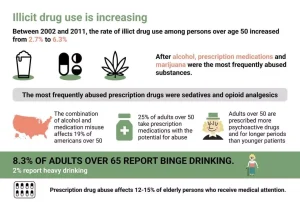
When you spend time with others, you naturally stop focusing on yourself and live in the present. Instead of drinking alcohol, consider visiting recreational or community center in your neighborhood or taking up a new hobby. Initially, alcohol can increase non-rapid eye movement (NREM) sleep, including deep sleep (slow-wave sleep). This leads to increased sleep disruptions and decreased sleep efficiency.

Can I bring a CPAP machine to prevent snoring on a plane?
- This episode of The Verywell Mind Podcast, featuring neurologist and sleep expert Chris Winter, shares strategies for sleeping better at night.
- The importance of sleep in overall health and well-being cannot be overstated.
- This happens because sleep helps to balance the hormones that make you feel hungry or full.
- While everyone’s timeline is different, many people start to feel the benefits of sobriety more fully with two weeks down.
- Rehab is instrumental in managing this condition, offering structured support, setting regular sleep schedules, and incorporating relaxation techniques.
- Reclining can cause your tongue to fall back into your throat, blocking airflow.
The body’s internal clock, which regulates the sleep-wake cycle, becomes more synchronized without the disruptive influence of alcohol. It’s important to note that while these improvements are encouraging, they may not be consistent every night. Some individuals may still experience occasional sleep disturbances or hangover anxiety, especially if they’re how to sleep without alcohol dealing with other stressors or adjusting to new sleep routines. However, the overall trend is typically towards better sleep quality. The idea of attempting to sleep without alcohol can causeanxiety, which can lead to more drinking, perpetuating the cycle of alcohol abuse.
The Harmful Belief: Alcohol as a Stress Reliever
Here are a few steps you can take to give yourself support and guidance throughout a month without alcohol. After contemplating your future with alcohol, you might also experience stronger than usual alcohol cravings. Learn on the strategies that have worked for you in the past to get through these urges.
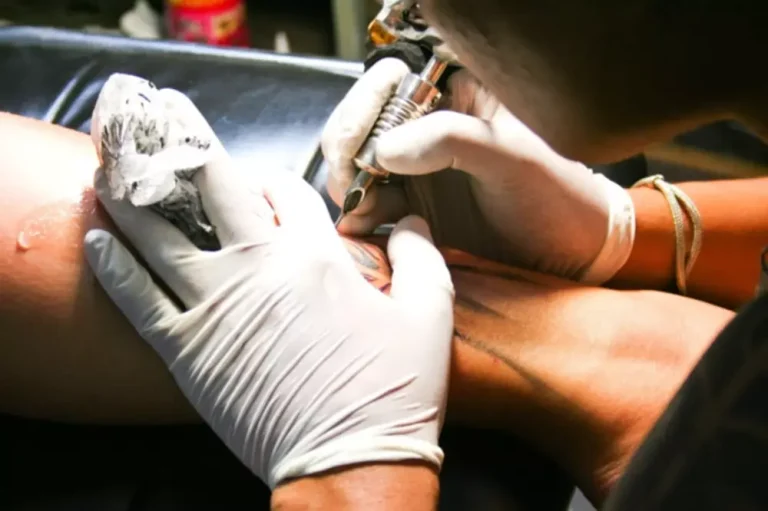
Spend time in nature

Here’s what you need to know about trouble sleeping without alcohol. Unfortunately, if you need alcohol to sleep, you may struggle long-term. And you might notice the difference in a matter of days — 80% of users get better sleep within five days. The more sleep debt you have, the worse your energy, mood, and productivity will be. Navigating the journey to sleep better without alcohol can be challenging but is incredibly rewarding. If you need support or guidance on this path, Uplift Recovery is here to help.
In 2024, 25% of US adults who regularly drink alcohol completed the Dry January challenge. But knowledge is power, and to help set expectations, I’ll be sharing some common experiences I’ve seen with my recovery coaching clients, and in my own sobriety journey. Alcohol can also cause an increase in blood pressure, particularly if you are struggling everyday to detoxify yourself.
Establishing a fixed bedtime and wake-up time assists the body in normalizing its sleep pattern, which is often disrupted during alcohol withdrawal. Even as the harsh symptoms of withdrawal fade, sleep disturbances could persist. Research shows that individuals recovering from alcohol use disorder often continue to experience fragmented sleep, insomnia, and difficulties achieving appropriate sleep duration.
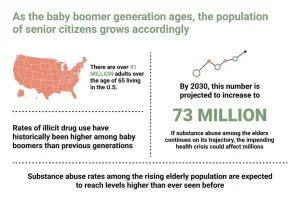
- Now you can check out the farmers’ market, go on a long walk, or make some progress on that DIY project.
- People experiencing insomnia-related impairments in their daily life may benefit from a healthcare provider’s expertise.
- The physical symptoms of withdrawal will be past their worst for most people, and the benefits of quitting alcohol will start to be noticeable.
- The circadian rhythm – the innate biological clock that manages our sleep-wake cycle – holds a crucial role in this narrative.
- Find a routine and stick to it, try some natural sleep aids, avoid caffeine before bed, get some exercise, and create a relaxing bedtime ritual.
- A growing number of people have had success using kratom to reduce the symptoms of alcohol withdrawal, including insomnia.
There are many styles of yoga including Ashtanga, Bikram, Kundalini, and restorative yoga. Additional benefits https://ecosoberhouse.com/ of yoga include increased muscle strength and tone, improved sleep, and increased flexibility. Research from 2020 suggests that taking a walk outdoors can reduce your stress levels and decrease symptoms of anxiety and depression. Alcohol affects the pleasure and reward system within your brain by increasing dopamine levels, making you believe you feel great. Using alcohol as a coping mechanism can have short- and long-term negative impacts in many areas of your life.
Examine alcohol health effects
Meditation, in particular, aims to focus the mind and detach it from daily stressors that could hamper sleep quality. Similarly, deep breathing exercises can shift the body’s response from ‘fight or flight’ stress mode to a calm and relaxed state, conducive to restful sleep. Yoga combines both physical movement and mindfulness, making it a powerful tool to improve sleep quality. Studies suggest that generally, insomnia symptoms are most challenging during the first few days of quitting. This is when the body is actively detoxifying, resulting in restlessness and unstable sleep patterns.
Catégorie: Sober living | Tags:
16 Simple Ways to Relieve Stress and Anxiety
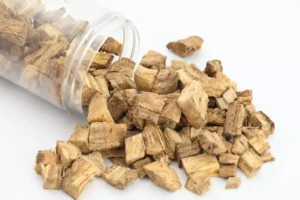
It can help a person slow racing thoughts and avoid catastrophizing. Guided imagery involves visualizing healthy ways of coping with stress calming, soothing situations. Individuals can try one or more of the below relaxation exercises.
Muscle Relaxation
The American Psychological Association’s 2022 « Stress in America » report reveals that, on a scale of one to 10, the average American has a stress level around a five. However, more than one in four survey respondents also indicated that on most days, their stress was so high that they were unable to function. Consider adopting a mantra such as “I can handle this,” and repeat it to yourself daily. A mantra such as this can help boost your self-esteem as you overcome your stressors and build confidence in your strength. For example, instead of thinking of your to-do list as things you “have” to do, reframe it as things you “get” to do.
Exercise to reduce stress
The effects of stress may vary among different racial and ethnic groups people, so it’s important to provide resources to meet these unique needs. Foam rolling adds pressure to those trigger points, signaling your body to increase blood flow to that area and for your muscle to relax. A full-body routine can help promote relaxation the way getting a massage will. Sometimes stress can cause your mind to spiral and lead you down an unnecessary rabbit hole of negative thoughts.
Chronic stress is a chronic problem. Here’s how to cope
Even high stress from serious illness, job loss, a death in the family, or a painful life event can be a natural part of life. You may feel down or anxious, and that’s normal too for a while. Of course, not everyone responds to each sensory experience in the same way.
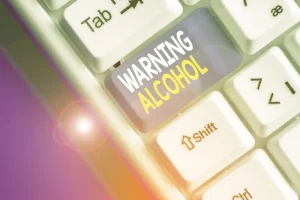
- The discomfort caused by inadequate chairs or desks, annoying noises, and even clothing can make you feel stressed.
- At other times, the best strategy involves changing the way you respond to the situation.
- Choosing an activity that you enjoy may help increase your chances of sticking to it in the long term.
- Keep these exercises on hand and use them whenever you feel stressed.
One way of escaping that spiral is to anchor yourself to the present and focus on immediate results you can achieve. Facing stress is an opportunity to reset your mind and take it as a chance to grow. Researchers say the brain is rewiring and trying to learn from the experience so you can handle it differently next time.
Cultivating optimism works by reducing our rates of perceived stress while also increasing our resilience. Manage your environment by avoiding people and situations that cause you to stress as best that you can. For example, if you work from home, make sure you have a quiet place to work where the people around you don’t disturb you. If not, look for ways to manage stress individually to avoid impacting the relationship. In fact, workers’ daily stress levels reached a record high in 2020. Before we jump in, let’s first take a beat to recognize that our stress levels are at an all-time high.
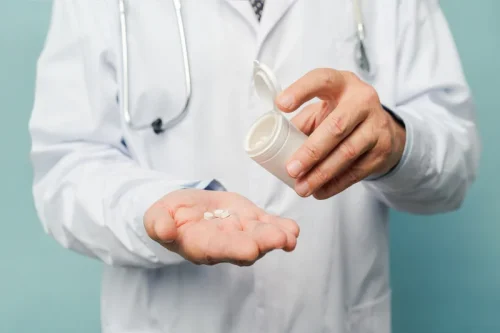
Short-term stress is a type of acute stress that occurs when a person faces a specific stressor. This may be a medical procedure, public speaking, or an important exam. Some stressors get resolved relatively quickly and go away (a travel delay, a deadline at work, a toddler’s temper tantrum, to name a few). It could even be something exciting — say if you’re preparing for an upcoming move or planning a wedding. Regular self-care practices and behavior modifications can help keep stress from overwhelming you — and scale your stress response in proportion to the stressor. Unless you plan to lock yourself in a room for the rest of your life, it’s impossible to exist without at least some level of stress every day, even while you’re on vacation.
Ask a friend or co-worker to be a sounding board as you talk out your issues. For example, if the smell of peppermint reminds you of holidays at home, use peppermint. But when the stress boilover happens during work, at a party, or in public, dropping everything to take a nap is definitely not a good look.
Clues that Indicate You Might Be Stressed
In contrast, trait anxiety is a stable personality trait characterized by a tendency to experience anxiety across various situations. For example, some people tend to have higher anxiety in general that is not limited to a specific event. Hosted by therapist Amy Morin, LCSW, this episode of The Verywell Mind Podcast featuring professor Elissa Epel, shares ways to manage stress. Medication may sometimes be prescribed to address some specific symptoms that are related to stress.
Calming Coping Strategies for Stress

Consider joining a club or sports team or volunteering for a cause that’s important to you. Minimizing the chronic stress of daily life as much as possible can support your overall health. Chronic stress can increase your risk of health conditions, including heart disease, anxiety disorders, and depression. Stress serves an important purpose — it enables us to respond quickly to threats and avoid danger.
Catégorie: Sober living | Tags:
Success Story: An Amazing Journey to Sobriety
Skip the Monday blues and give a big hello to Primary Therapist at Lantana, Chip Eggleton, on this #MeetTheTeam Monday. Chip was inspired to pursue a substance use disorder treatment career after his experience with the recovery community. The act is named for a late New York-Presbyterian emergency room physician who died of suicide at the height of the pandemic in April 2020. Except for providing testing to verify that residents aren’t using drugs or alcohol, sober living homes can’t provide treatment or any medication on-site. Friday marked one year since Stephanie Sterling, 60, quit using alcohol and crack cocaine. It is an addiction she struggled with for most of her adult life.
- I chose Atlas of the Heart because it touches on the important theme of second chances.
- But as I quit drinking, I began to lose weight and improve my fitness levels significantly.
- Weller has a relatable story for any high-achiever who finds themselves with boozy, foggy evenings that turn into hangovers the next morning.
- « And without these places, there would be no success stories. »
- I’ve had more fun and adventure in sobriety than I ever could have dreamed.
’ I didn’t know I had this body that worked against me. If I did manage to stop, my mind told me that I could drink like normal people. As I embraced my feelings, I embarked on a journey of personal growth and self-discovery. I found that quitting alcohol led to a powerful transformation within me. It allowed me to reflect on my thoughts, feelings, and reactions, and strive to become a better version of myself. Quitting alcohol also paved the way for rebuilding trust in relationships.
Your recovery story starts today.
These strategies helped me stay focused on my sobriety goals and manage cravings effectively. I discovered my true identity, one that was not clouded by the haze of alcohol. I experienced a sense of freedom, a new lease on life. It felt like I was finally living the life that was truly aligned with my authentic self. I no longer had to rely on alcohol to cope with my feelings and instead, learned to navigate them with grace and understanding. It required honesty, openness, and consistency in my behavior.
My hands would sweat so much that I could barely don sterile gloves. I was fortunate at that time to primarily be supervising three highly skilled fellows training in our practice any involvement on my part. I couldn’t wait for the workday to end so I could get to my car and have a good dose of alcohol from the bottle under the seat. Books have a powerful impact on addiction recovery. They provide support, understanding, and hope to those on the journey to sobriety.
Finding the Right Support System
May 4th, 2019, leaving a Racetrack, I was involved in an accident that was completely my fault. My Attorney told me the story of his Nanny going into Valley Hope years ago and has been clean for 8 yrs. When he mentioned entering inpatient for 30 days, I said I can’t do that, my business will be lost. My Attorney/Friend point blank told me that I was sick and needed help.

Alcohol had caused mistrust and lack of communication in my relationships. But as I stopped drinking, I demonstrated my commitment to personal growth and responsibility, leading to better mental health and overcoming low self esteem. Imagine waking up every morning with a clear head, a calm https://trading-market.org/most-people-with-alcohol-and-drug-addiction/ heart, and a sense of purpose, free from the shackles of alcohol. This isn’t a far-fetched dream, but a reality that unfolds when you decide to quit alcohol. It’s a journey, a dance of strength, resilience, and profound transformation – a journey of how quitting alcohol changed my life.
Giants fans are shockingly sober despite a decade of misery
The path to recovery is rarely smooth or straightforward. Women in recovery often face numerous challenges, including dealing with withdrawal symptoms, mending broken relationships, and rebuilding their lives. Many also confront the stigma surrounding addiction, which can add to the emotional burden of the recovery process. The following morning, after the kids were off to school, I told my wife that I was an alcoholic and that I was seeking help. She didn’t realize how much lying is an integral part of alcoholism.
- It allowed me to reflect on my thoughts, feelings, and reactions, and strive to become a better version of myself.
- It’s visible from grocery stores to ads on your social media feeds.
- The path to recovery is rarely smooth or straightforward.
- “I was able to stay sober for 9 months – meetings every day, praying every day, really in the middle of the program.
It’s common for people who live in sober living homes to have a roommate because it provides the accountability that helps prevent relapse. Complaints about unlicensed sober living homes rose to 446 in 2023, which was MASH Certified Sober House Transitional Living more than four times the 94 complaints Arizona health officials received in 2021. Complaints about licensed sober living homes more than doubled during that same time frame, from 26 to 68, department data shows.
Catégorie: Sober living | Tags:
Guilt and Grief: Making A Living Amends
Many times, these kinds of promises serve to alleviate the wrongdoer’s guilt and so that they can say they apologized before their loved one died. With these kinds of promises, there may not be enough genuine intention of changing their hurtful patterns and behaviors. The origin of living amends in modern use relates to addiction recovery and substance abuse treatment. However, in the context of grief recovery, David Kessler, in his book Finding Meaning, talks about the importance of living amends as a tool for grief healing.
- This was possible thanks to the financial support I received from Living Amends.
- I am happy to be able to pass this gift on to others in early sobriety to help them in the same way that it has helped me.
- But for some reason, this time, at age 56, he was overcome with emotions.
- I hope you can find it in your heart to forgive me, but if not, I understand.
What Makes Me Healthy 2022 Graphic Design Winner – Kelly Zalewski Poster
- Unfortunately, after you get sober, all the hurt and destruction you caused in the wake of your addiction doesn’t just go away.
- Talking to my sponsor he flat suggested I get a new job anyway so I would have time to devote to my recovery.
- He was a regular presence at league events — always upbeat, smiling ear to ear and looking to share his wisdom and warmth.
- Practice accepting other’s responses to your efforts and remember that you have done all you can.
- Get confidential help for yourself or your loved one through Recreate Behavioral Health Network.
- To discern whether to make amends, ask yourself why you’re wanting to contact the person.
Proceeds are then deposited in the Pari-Mutel Wagering Trust Fund. As such, this bill establishes minimum education, experience and training requirements to qualify for a director position. These standards include holding a bachelor’s degree, having at least four years of similar experience in another role, and completing 150 hours of emergency management training.
When Should You Approach a Person to Make Amends?
We will honor the emotional consequences that stem from our behaviors, and seek to become healthier so as not to repeat them. After all, years of drug or alcohol abuse will not be undone with an apology or a few simple words. We need to prove to our children that we are seriously addressing our addiction, not just offering cheap words. Again, in recovery, your words may not mean as much to some people as you wish they would. Understandably, some people may just need more time to learn how to trust you again.
When and Why Do People Make Living Amends?
I don’t call him to see how his meeting went this week or what step he’s on. If he specifically asks for my opinion, which he doesn’t, I will give it. How you start these conversations depends on your relationship with the person you harmed and the circumstances in which you plan to make direct amends. When making direct amends, it is usually best living amends to do so after a sustained period of sobriety and while in a calm state of mind. However, even if you feel extremely motivated to make direct amends, it is advisable to take your time with this step. Make sure that you are comfortable with your progress during recovery and that both you and the other person are ready to engage in the process.
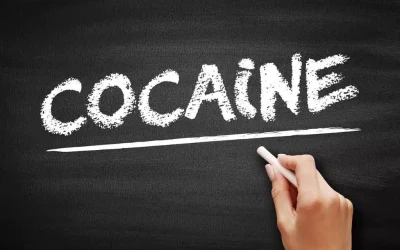
If you have any questions, we invite you to complete our contact form. Unfortunately, after you get sober, all the hurt and destruction you caused in the wake of your addiction doesn’t just go away. You have to put in the work to repair the damage and heal those relationships. To make amends, you must do more than just make apologies for your past behavior. Instead, making amends means you apologize for what you’ve done and make it right. Similarly, making living amends means you completely change the way you live and remain committed to that lifestyle.
Supporting Sobriety Podcast is Now Live – WIBC – Indianapolis News & Politics
Supporting Sobriety Podcast is Now Live.
Posted: Thu, 08 Feb 2024 08:00:00 GMT [source]
Other individuals who have completed Step 9, such as your sponsor, may be able to help you choose a meaningful way to make indirect amends. Children don’t need to hear about the disease of alcoholism or the Twelve Steps. So we can skip the long-winded speeches and just be mom or dad. In Twelve Step terminology, another word for « amend » is « fix. » Not the fix we might have chased back in the day, but a fix to a broken relationship. We don’t need to delve into the past and apologize for every birthday party we missed, every fight we picked or the years we were absent— either physically or emotionally. Generally speaking, people work through the Steps of Alcohol Anonymous with an addiction treatment counselor and/or sponsor.
While I did these things in active addiction, that does not take away from how wrong they were, and the pain and sense of betrayal you must have felt as a result of my actions. Say, for example, you’re preparing to make amends to a former coworker, whom you once stole from to pay for drugs. In addition to apologizing and asking for their forgiveness regarding the incident in question, you might offer to repay them in full for the money you stole. But, as difficult as it is, completing this step can provide an immense sense of relief and newfound hope for the future. At the heart of this step is the need for forgiveness and restoration—forgiving yourself, forgiving others, and making amends. Today, I know my words have value whether they pay attention or not.
Making Living Amends in 12 Step Recovery
- To fix broken relationships, you have to put a lot of effort into making things work.
- One of her children is killed crossing the street on their own even after telling their mother that they were afraid to cross the busy street alone.
- House Bill 241 addresses coverage of skin cancer screenings under the state’s employee health coverage.
- Each person’s experience of addiction and recovery is unique.
- House Bill 865 requires athletic coaches at Florida public schools to be certified in CPR, first aid and the use of an AED.
- And some people in your life may not be receptive on your timeline.
For starters, the law removes restrictions about how many hours per day and week these teens are allowed to work, allowing them to work the same number of hours as an adult. Below is a full list of the laws that will take effect next month compiled by News 6 in Orlando. TALLAHASSEE, Fla. – Over the past few months, Florida lawmakers and Gov. Ron DeSantis have been busy passing new laws as part of the 2024 Legislative Session. If you fulfill each of these requirements, you should apply to our scholarship fund. The goal is for each recipient to have a stake in their sobriety. Therefore we never give 100% scholarship and steadily decrease the amount over time.
Catégorie: Sober living | Tags:
Vanderburgh House is a recovery-focused and peer supported sober living community
You will have to develop certain responsibilities, such as getting work, going back to school, or volunteering in your community. You will required https://ecosoberhouse.com/ to pay rent and follow a strict set of house rules. And you’ll be planning for a future which wasn’t possible while you struggled with addiction.
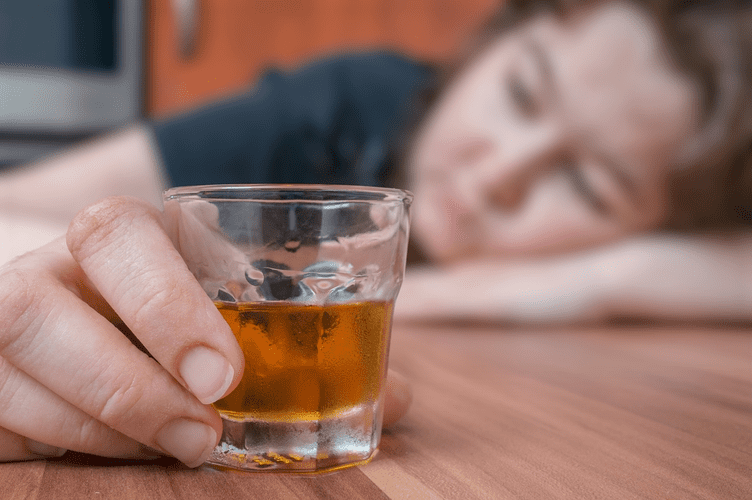
That use will not be disrupted by the overnight shelter, according to an email obtained by the Herald. The city plans to begin using a former Mass and Cass addiction outreach center as an overnight shelter for homeless people, including newly arrived migrants, who have been sleeping on the floor at the Southampton Street men’s shelter. We offer you recovery support in a safe, judgment-free environment, so you can always rest assured you are getting the help you need from people with experience. In our stunning Cape Cod sober homes, we choose growth, health, healing and wellness over standard early-recovery experiences. For some, creating a new life after completing treatment for substance use disorders can be a challenge. What matters the most in healing from addiction is laying the groundwork for a lasting recovery.
The ‘threat is grave’: House Intel chairman sparks panic with cryptic warning about a ‘serious national security threat’
At Tharros House, we combine a sober community with aftercare, assisting our clients as they acquire new skills to meet life’s challenges in a fresh and encouraging way. Our mission is to help our clients achieve long-term recovery, move on from feelings of shame, and learn how to live a fulfilled life. Our sober living home reinforces honesty and integrity as we provide support along the journey to cultivating a new, constructive and optimistic sober lifestyle. With more than 50 years of recovery experience, our team understands what you’re going through and we want to help you love life again. Establishing a strong sober home community culture is critical to success in recovery.
Clients also learn life skills through one on one mentoring and fun events, like cooking with exceptional private chefs! Also included, our community offers activities, like weekend sober houses boston rock climbing, golf, and basketball. On Saturdays, clients can participate in engagement activities, like trampoline dodgeball, go-kart racing, and escape room challenges.
Catégorie: Sober living | Tags:
All About Alcoholic Rage Syndrome: The Angry Drunk Phenomenon and How To Get Past Alcoholic Rage
Neuroinflammation plays a significant role in the development of alcohol use disorder (AUD) by aggravating cognitive function decline and emotional disturbances. Researchers have also found a link between variations in the serotonin 2b receptor gene and increased impulsivity, which can lead to aggressive behavior in individuals with AUD. Community-based programs play a vital role in preventing and managing alcoholic rage syndrome. They provide a platform for individuals to learn about the risks and consequences of alcohol on emotions, such as anger and aggression. Examples of such programs include local support groups and educational sessions.
Alcoholic Nosebleeds: Causes, Prevention, and Recovery Strategies
If you or a loved one are struggling with alcoholic rage syndrome, it is essential to seek help from a qualified professional who can provide customized support and guidance. At Sabino Recovery, our residents have found relief through comprehensive assessments and evidence-based treatment approaches tailored to their unique needs. If your behavior fits the description of an angry drunk, it may be difficult to admit you behaved that way under the influence.
Personal and Relational Consequences
If you try, you will only be putting yourself in harm’s way and possibly end up fueling their addiction by being coerced into enabling it. You mustn’t allow yourself to get sucked into the abuse cycle with the alcoholic. can alcoholics have food cooked with alcohol An alcoholic, when intoxicated, will often feel a sense of grandiosity and entitlement, as if they are better than everybody else. They feel as if they can do no wrong, and it is everybody else who is at fault.
Our daily research-backed readings teach you the neuroscience of alcohol, and our in-app Toolkit provides the resources and activities you need to navigate each challenge. Now that we know what alcoholic rage syndrome is, can we do anything about it? In other words, can we make our inner “Tammy” or “Jimmy” (or whatever name your boozy alter-ego might have) stay away for good? Those who do seem prone to get angry under the influence might have some characteristic brain activity patterns going on. These neurochemical changes are correlated to some behavioral symptoms, such as disinhibition, and also relate to some psychological factors. If you follow true crime, you’ve heard about the notorious Murdaugh trials in South Carolina, with the latest being the trial of Alec Murdaugh convicted for killing his son and wife.
Violence can occur in marriages, long-term partnerships, and dating relationships. A lack of impulse control can make a does alcohol cause gallstones person unable to resist the sudden, forceful urge to fly into a rage or act aggressively. Intermittent explosive disorder can begin in childhood — after the age of 6 years — or during the teenage years.
Identify the root of the anger
- Alcohol factors into nearly a third of all murders in the United States.
- They provide a platform for individuals to learn about the risks and consequences of alcohol on emotions, such as anger and aggression.
- They will often blame innocent bystanders for provoking them to anger and meltdown into fits of rage over the smallest things because they demand that everything be their way.
- This disorder also involves having to drink more to get the same effect or having withdrawal symptoms when you rapidly decrease or stop drinking.
In summary, heavy drinking or chronic drinking alters brain chemistry in the short and long term. For these reasons, some people may exhibit nervousness, outbursts, aggression, and even violence while intoxicated or during withdrawal. Alcohol affects brain chemistry by altering neurotransmitters, which manage our mood and impulses. It decreases inhibition and can increase stress hormones like cortisol, making some individuals more prone to anger and aggression when drinking.
This may explain why they are angry more often and act more aggressively than someone who does not have this personality trait. Selecting the best care involves considering your personal needs, circumstances, and preferences. It’s essential to commit to a sobriety plan and alcohol abuse intervention to help prevent relapse and manage anger effectively. But in real life, a person who loses control of their emotions when they drink is anything but entertaining. People spend years in therapy and in treatment for issues of their own that are caused by the consequences of this behavior. Alcohol use disorder is a pattern of alcohol use that involves problems controlling your drinking, being preoccupied with alcohol or continuing to use alcohol even when it causes problems.
Understanding the triggers and warning signs can be crucial in helping you or a loved one manage this condition and seek appropriate treatment. If you have intermittent explosive disorder, prevention is likely beyond your control unless you get treatment from a mental health professional. Many people who have an alternate personality when they drink look back on it clarity when they sober up. Sometimes the shame of facing the things they did while intoxicated causes them to start drinking again, proliferating a vicious circle of substance use and abuse.
Symptoms of Alcoholic Rage Syndrome
Luckily, that clarity can be beneficial, because it means that you have a chance to put your foot down and stop what you’re doing. If you become a crazy drunk person when you’re drinking, and you drink often, it’s probably safe to say you’re an alcoholic. Unfortunately, quitting something that’s become an addiction isn’t as easy as simply making narcissism and alcoholism the decision to stop. Many people with “angry drunk” tendencies also end up on the wrong side of law. A “crazy drunk person” is one who drinks excessively and frequently due to alcoholism. Because they’re naturally predisposed to be angry when they drink, this becomes a key part of their personality because they can’t control their drinking or their temper.
Catégorie: Sober living | Tags:
Symptoms of Alcohol Withdrawal: Timeline and Signs of Danger
The legal limit for BAC while driving is .08%, though some states enforce a zero-tolerance policy for drivers under 21. Driving with a BAC of .08% or more can result in serious penalties, including fines, jail time, license suspension, and more. If you or a loved one struggle with alcohol misuse, it’s important to know that help is only a phone call away.
- Know that your provider will be there to support you, not to judge you.
- As the alcohol hits your liver, the organ responsible for clearing toxins out, the liver responds by producing the enzyme alcohol dehydrogenase.
- Once the alcohol gets into your bloodstream, it starts flowing to all of your organs — reaching your brain in around 90 seconds.
- The legal limit for BAC while driving is .08%, though some states enforce a zero-tolerance policy for drivers under 21.
- Individuals should be prepared to be uncomfortable during this period and have medical help available if needed.
Severe Symptoms
When ingested, alcohol is rapidly absorbed from the stomach and small intestine into your bloodstream before it travels to the central nervous system (brain and spinal cord). As a central nervous system depressant, alcohol impairs the communication of messages in your brain, altering your perceptions, emotions, movement, and senses. The amount of alcohol in a person’s bloodstream is their blood alcohol content (BAC). It’s also important to know how much alcohol is in your drink because that will determine how long it takes to metabolize your drink. For example, some beers have a higher alcohol content, affecting how much alcohol you consume from one drink. However, the organ can only metabolize a little at a time, leaving the excess to circulate throughout your body.
How Long Does It Take to Feel Effects?
You’ve knocked back a few drinks and things start looking a little fuzzy. Call your local emergency services if you suspect alcohol poisoning in a friend or loved one. The quicker you seek help, the more likely you are to minimize potentially fatal complications. You may have heard it is okay to drink alcohol while breastfeeding or chestfeeding a baby in certain circumstances. Blood alcohol concentration (BAC) refers to the amount of alcohol in your blood to the amount of water in your blood. Caffeine is a stimulant, which can perk you up and reverse some of alcohol’s effects.
Moderate to heavy drinkers can also benefit from medical supervision in the acute withdrawal stage. For people who experience hallucinations as part of alcohol withdrawal, these may begin in the 12- to 24-hour time frame. When someone drinks alcohol for a prolonged period of time and then stops, the body reacts to its absence. This is alcohol withdrawal, and it causes uncomfortable physical and emotional symptoms. On the other hand, binge drinking is generally defined as four drinks for women and five drinks for men within a two-hour period.
How Long Does Alcohol Stay on Your Breath? What You Need to Know
How much alcohol you consume plays a role in how long you’ll stay drunk. Additionally, drinking can lead you to urinate more often and cause dehydration, so you can prevent any negative effects by taking in the water. However, the safest option for nursing people is not to drink any alcohol.
When you swallow alcohol, it soaks into the tissues of your stomach and upper intestine. If you’re struggling with alcohol addiction, many resources are available to help you recover. Rehab programs can assist in treating AUD by providing medically supervised detox, rehabilitation, and therapy services. It’s characterized by an impaired ability to stop or control alcohol use despite adverse social, occupational, or health consequences. BetterHelp can connect you to an addiction and mental health counselor. ” self-assessment below if you think you or someone you love might be struggling with an alcohol use disorder (AUD).
A breath test uses breathalyzer devices to measure a person’s BAC from their what is smack in the dirt breath. Measuring the alcohol in approximately 2,100 ml of breath is equal to testing for the same substance in 1 ml of blood. It is possible for your system to still have enough alcohol in it the following day that you could fail a urine or blood test for driving under the influence. You would have a problem trying to pass a test that is designed to detect the presence of any alcohol.
The body metabolizes alcoholic beverages approximately one standard drink per hour. Alcohol exits the body’s systems at an average rate of .015% per hour, equivalent to roughly .25 to .30 ounces of ethanol (half a drink) every hour. An ethyl glucuronide alcohol test (EtG test) is an advanced form of urine testing that measures the amount of ethyl glucuronide in a person’s urine sample. Ethyl glucuronide is produced after drinking alcohol and is a byproduct of alcohol metabolism. Traces of alcohol can generally be detected in the body if it’s been consumed within a day. Alcohol byproducts like ethyl glucuronide (EtG) will be present in urine for up to 3 days after a person’s last drink.
Catégorie: Sober living | Tags:
What to Do if You Think Someone is Overdosing Stop Overdose
A person can still experience the effects of an overdose after a dose famous people who died from alcoholism of naloxone wears off. Because of this, it’s essential to call 911 for the person so they can get immediate medical care. Anyone who uses opioids could potentially experience an opioid overdose. Overdoses can happen to people during their first time using opioids, to people who’ve taken them multiple times or to people who have opioid use disorder. Drug overdose is the leading cause of accidental death in the United States, with opioids being the most common cause.
People can also die from opioid overdose when they (knowingly or unknowingly) use an opioid in combination with another substance, such as a sedative or stimulant. These combinations create a level of toxicity in your body that’s deadly. While North America currently has the highest rate of opioid overdoses in the world, opioid overdose continues to be a global issue. Learn the value of harm reduction and how you can help prevent overdoses in your community. Fentanyl Test strips are a harm reduction tool that detects the presence of fentanyl mixed into a substance, such as cocaine or heroin. You can learn more about overdoses from cocaine and other stimulants, which often rebuilding your life after addiction involve fentanyl, from this report issued by the OASAS Medical Advisory Panel.
- Police officers, emergency medical technicians and first responders carry and have training on how to give naloxone.
- They also perform other tests to assess the health of the person and to look for possible complications.
- People experiencing an opioid overdose need naloxone (commonly known by the brand name Narcan®).
- An online and mail-based harm reduction platform that deliveries harm reduction supplies to New Yorkers outside of New York City.
If the person is still unresponsive and not breathing after administering a second dose of naloxone, you should continue supporting their breathing as best you can. If you suspect a person has overdosed, but you’re not sure what substance they’ve used, you should still give them a dose of naloxone just in case they have opioids in their system. If they didn’t take opioids, naloxone is still safe — it just won’t have any effect.
How common are opioid overdoses?
If you use prescription drugs, be sure to use them only as directed by your doctor. Do not combine any medications without first asking your doctor if it’s safe. You should also not mix alcohol with prescription drugs without checking with your doctor first. An overdose can lead to serious medical complications, including death. The severity of a drug overdose depends on the drug, the amount taken, and the physical and medical history of the person who overdosed.
Stay with the person until emergency services arrive
It can be difficult for people who use opioids or other substances to know what to expect when using nonmedical forms of opioids. This is because when they’re not regulated medically, they often have varying levels of potency. Using unregulated opioids increases someone’s chances of overdose and death from overdose.
An opioid overdose happens when opioids negatively affect the part of your brain that regulates breathing, resulting in ineffective breathing. A person experiencing an opioid overdose needs naloxone and immediate medical care to prevent death. Opioid overdoses are medical emergencies that require quick diagnosis and treatment. Because of this, first responders and people who are trained to administer naloxone (Narcan®) mainly rely on symptoms and personal history to diagnose them. As the person experiencing an overdose is usually unconscious, providers rely on bystanders or loved ones to tell them if the person has a history of substance use.
This rise is due to the increased use of prescription narcotics as pain medication and the contamination of nonmedical opioids and other substances with highly potent opioids like fentanyl. Using any kind of opioid has the potential to result in opioid overdose, whether it’s a prescription or nonprescription opioid. About 75% of opioid overdoses are due to nonmedical use of synthetic opioids — mainly forms of nonmedical fentanyl. The healthcare provider may be able to use an antidote for certain drug overdoses. For example, the drug naloxone can help reverse the effects of a heroin overdose. It’s important to note that the effects of naloxone only work for 30 to 90 minutes, but after that time, a person can overdose again if opioids are still in their system.
A drug overdose is taking too much of a substance, whether it’s prescription, over-the-counter, legal, or illegal. If you’ve taken more than the recommended amount of a drug or enough to have a harmful effect on your body’s functions, you have overdosed. Anyone can overdose, especially when using drugs for the first time or using after a period of not using. If you have overdosed previously, gas x and alcohol interaction you are much more likely to overdose again. If you do use alone, make sure someone knows where you are and that you are using so that they can check on you by phone/text and notify 911 if you don’t respond.
Lifestyle Quizzes
Overdoses are most common among those who use opioids and may be increasing in some populations or areas recently in the context of COVID-19. Drug overdoses from other drugs (e.g., cocaine, methamphetamine) have also been increasing, largely due to the mixing of these drugs with opioids such as fentanyl. Factors that increase the risk of overdose and death include drug use following a drug-free period, mixing substances, using alone, and having other medical conditions such as lung or heart conditions. If you or someone you know uses opioids, it’s important to carry naloxone in case of an overdose.
How to Find Help for Substance Misuse
If you or a loved one has opioid use disorder, talk to a healthcare provider as soon as possible. A trained provider can help guide you to the treatment you need. Opioid use disorder is a medical condition — it requires care just like any other condition.
Catégorie: Sober living | Tags:
10 of the Best Alcoholic Beverage for People with Diabetes
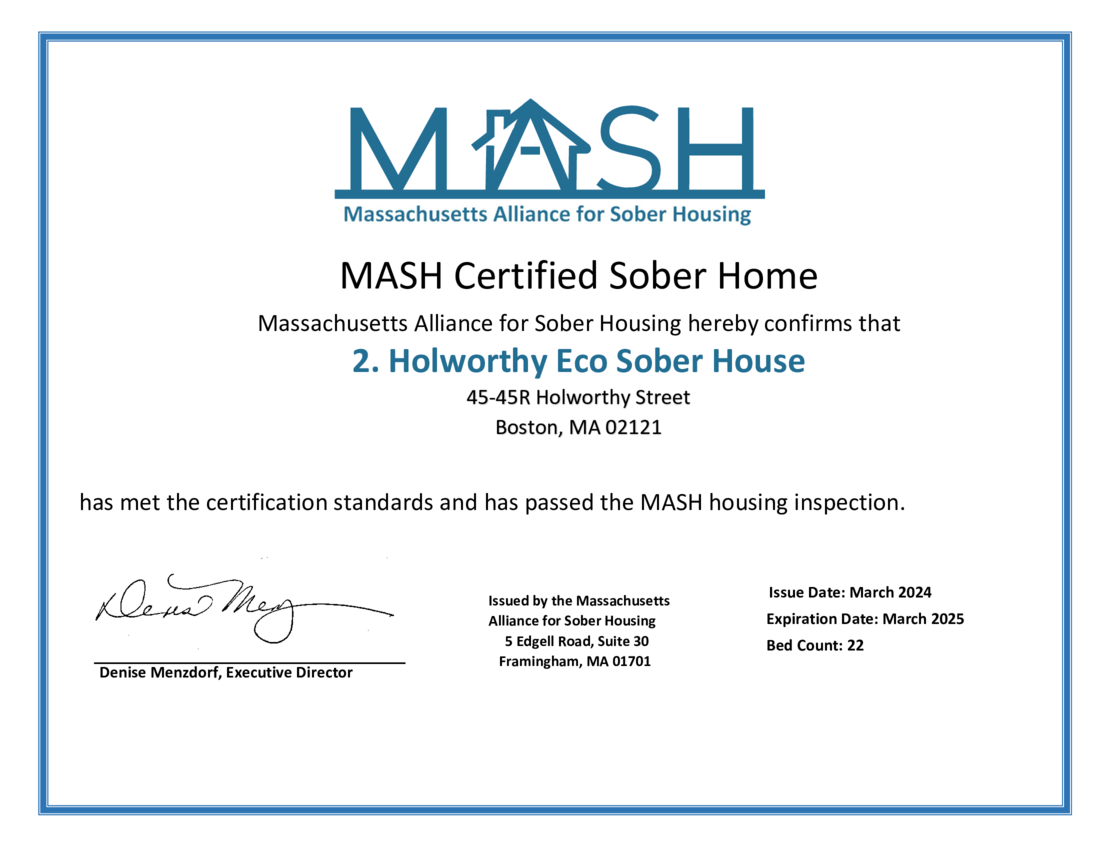
In people with diabetes, the pancreas does not produce sufficient insulin (type 1 diabetes) or the body does not respond appropriately to the insulin (type 2 diabetes). Alcohol consumption by diabetics can worsen blood sugar control in those patients. For example, long-term alcohol use in well-nourished diabetics can result in excessive blood sugar levels.

Referent-Specific Data
- So you may not know if your blood sugar is low or what you’re feeling is just the effects of the alcohol.
- The findings discussed here presents that the role of chronic use of alcohol on diabetes might be high of importance for clinical research and practice.
- The risks depend on how much alcohol a person consumes, as well as the type.
- However, whether these adverse effects in humans are mediated by changes in glycemic control and/or insulin action is far from clear.
- The two most common forms of DM are type 1 (T1DM) and type 2 diabetes, with T1DM accounting for approximately 10% of all cases in Caucasians [18].
Alcohol dependent subjects were found to have decreased plasma BDNF levels and impaired insulin resistance, which is a major pathogenic feature of T2DM. This might indicate that BDNF may be linked to the pathophysiology of T2DM after alcohol use. Ketoacidosis, which occurs primarily in diabetics, is a condition characterized by excessive diabetes and alcohol levels of certain acids called ketone bodies (e.g., acetone, acetoacetate, and β-hydroxybutyrate) in the blood. Elevated levels of those compounds can cause nausea, vomiting, impaired mental functioning, coma, and even death. Ketoacidosis is caused by complete or near-complete lack of insulin and by excessive glucagon levels.
Alcohol and your weight
Initially, resistance can be overcome by increasing insulin production. A deficit in insulin secretion, coupled with the state of insulin resistance, leads to T2DM [20]. https://ecosoberhouse.com/ Therefore, T1DM is characterized by a complete lack of insulin production, whereas, T2DM is characterized by a reduction of insulin production plus resistance [21].
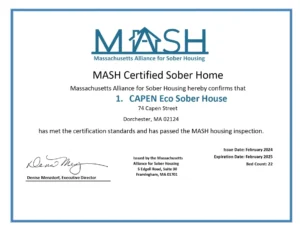
2. Insulin Secretion and Plasma Concentrations

In an average person, the liver breaks down roughly one standard alcoholic drink per hour. Any alcohol that the liver does not break down is removed by the lungs, kidneys, and skin through urine and sweat. If someone chooses to consume alcohol, they should have food with it and keep a close watch on their blood sugar.
For example, neither a single oral dose of alcohol [93] nor a 4 h intravenous infusion altered plasma insulin concentrations determined 12 h later. Similarly, no change in the plasma insulin concentration was reported in chronic alcohol-fed rats [14,57], which is consistent with the lack of a significant change in pancreatic insulin content [89]. Additionally, 1–3 weeks of moderate alcohol consumption in humans did not alter the basal insulin concentration [61,87] and plasma insulin did not differ after long-term moderate alcohol intake [96]. The relationship between the magnitude of alcohol consumption and basal insulin concentrations may also be J- or U-shaped. For example, mild to moderate alcohol consumption in humans has been repeated demonstrated to decrease fasting insulin levels relatively to subjects consuming no/low alcohol and/or those with a high alcohol intake [22,23,24,109,110]. Drinking alcohol while taking Ozempic (semaglutide) is a topic that warrants careful consideration, according to published research.

You can save your life by drinking slowly
Treatment for Alcohol Addiction
What to know about type 2 diabetes and alcohol
- People with diabetes should be particularly cautious when it comes to drinking alcohol because alcohol can make some of the complications of diabetes worse.
- In addition, alcohol consumption may excessively raise or lower your blood sugar levels, depending on the drink and whether you have eaten recently (2).
- Don’t use dangerous equipment, or engage in activities that require coordination, concentration, or alertness.
- “You need to know if your medications or any diabetes-related conditions you have could be seriously affected by alcohol consumption,” emphasizes Harris.
Catégorie: Sober living | Tags:
How long does a hangover last? Plus how to cure a hangover fast
The immediate impact of the property sector’s decline is undeniably severe. Analysts highlight the looming specter of defaults on property developer debt, the staggering sum of which threatens to unsettle economic actors from homeowners to local governments. This strategic pullback aims to stabilize the market after decades how long a hangover last of rampant growth. However, several analysts and rating agencies expect that stabilizing the property market’s decline and restoring a new equilibrium will be a lengthy process, possibly stretching to the decade’s end. Any misstep in management threatens to transform this calculated choice into a considerable failure.

Dehydration symptoms include dizziness, lightheadedness, fast heartbeat, irritability, and fainting. If you feel too impaired to operate a vehicle, make decisions, etc., then it may be a good idea to wait a few hours until you feel capable of doing so. Hangovers begin when a person’s blood alcohol level drops several hours after they stop drinking. You may have dry mouth, headache, dizziness, or nausea and be tired, shaky, thirsty, or sensitive to light and sound. People who have had too much to drink often don’t sleep well, which can make all those issues worse. Your hangover might also affect you mentally, making it hard to concentrate or making you irritable or depressed.
Things to avoid
Proceed with caution when using these medications before or after consuming alcohol. Some people take pain relievers to prevent hangover symptoms. But ask your healthcare professional if this is safe for you and how much medicine is best for you.

« The liver needs to first break down alcohol into acetaldehyde, which is toxic, » says Anne Boris, RD, LDN, of Northwestern Medicine Huntley Hospital. Many people use alcohol as a form of self-medication to overcome stressful mental health issues, such as depression, anxiety, or past trauma. Alcohol is readily available to most adults and drinking is socially acceptable, so it becomes an easy way to avoid confronting the real issues which are causing stress. However, without professional intervention, this pattern of behavior can easily escalate into a reliance on alcohol. Evidence from the Boston University School of Public Health would suggest, largely, you can avoid a hangover if you only have one or two drinks. This is unlikely to elevate your blood alcohol content to a level where it would come back down substantially, so giving you the symptoms of a hangover.
When Does a Hangover Peak and How Long Does It Last?
Kroger and Albertsons, the nation’s two largest supermarket operators, are proposing to become one large supermarket company. As the Federal Trade Commission pointed out this week in a lawsuit seeking to block the combination, that is unlikely to benefit the 700,000 people who work for the rival chains. She plans to vote for President Biden in the Michigan Democratic primary on Tuesday, rejecting the push by some activists in the state to vote uncommitted to send Biden a message about the war in Gaza. Janet Webster Jones is the kind of person people lovingly call a character.
In turn, this is why consuming alcoholic drinks that are high in congeners can lead to a worsened hangover. A comprehensive study performed in 2013 explored the amount of congeners in many types of alcohol, including all liquors. The results of this study found that vodka was the option that had the least congeners per serving.
ways to cure your hangover
Day after day, he hooted, fluffed and spread his magnificent wings and flew above our heads, resisting all the naysayers. New York, the city that lives and thrives with all its complexity and mess, the destination of millions in defiance of all the predictions of its demise, immediately recognized one of its own and embraced him. They express anguish over the pain and loss of life, bewilderment at how needless it was and frustration over how the police responded. (Robert Mackey, who conducts the interviews, is a friend and former New York Times colleague.) I watched the video in my kitchen before the sun rose. If anyone else had been awake, they would have heard me gasp several times as the story deepened. The idea in each case is that Biden-era inflation explains some popular discontent, just not the intensity of the public’s economic pessimism or the depth of the president’s unpopularity.
Catégorie: Sober living | Tags:

 Service commercial : 01 80 88 43 02
Service commercial : 01 80 88 43 02